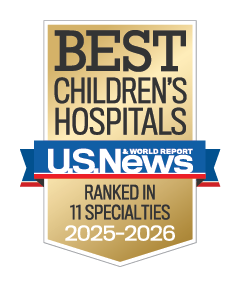Search Videos and More
 Video
Video
Better Beats for Tiny Hearts: The Fetal Cardiovascular Program
Learn why access to early fetal echocardiography is priceless and glimpse a future where providers in less resourced areas could deliver enhanced maternal-fetal care thanks to an advanced method of screening for heart abnormalities. Video
Video
Straight Talk on Curves: Identifying and Managing Spine Anomalies in Kids
With a focus on the most common type of scoliosis, pediatric orthopedic surgeon Ishaan Swarup, MD, offers this guide to detecting and evaluating the vertebral deformities seen every day in the clinic Video
Video
Tic Talk: Current Perspectives on Tourette's and Similar Disorders
Delivering useful definitions and classifications, pediatric neurologist Ana Grijalvo Perez, MD, discusses tic characteristics, scales to assess severity, what's known about genetic influences, and guidance on when and how to initiate care for children bothered by their own repetitive behaviors. Course
Course
Pediatric Traumatic Brain Injuries
Experts in sports medicine, pediatric neurology and pediatric surgery come together to deliver the information and guidance clinicians need to diagnose concussion in young patients, assess the severity of traumatic brain injuries, determine which children need imaging, and counsel families appropriately about workup options and recovery. Course
Course
Urology for Primary Care- UTIs, reflux, and testicles
Specialists in urological care for babies and toddlers, nurse practitioners Bethany Cichon and Jessica Olivero deliver this talk covering urinary tract infections, vesicoureteral reflux undescended testicles Video
Video
The Neuropediatrician Niche: How a New Specialty Serves (and Soothes) Worried Families
Alicia Callejo-Black, MD, describes the neuropediatrician’s potential to enhance care access for patients with certain childhood neurological issues Video
Video
Gynecologic Concerns in Puberty and Adolescence: Strategies for Pediatricians
Gynecologist Sloane Berger-Chen, MD, delivers this information-packed talk on reproductive system care for pre-adult patients. Video
Video
Heart Failure in Children: Presentations, Causes & Workup
Pediatric cardiologist Othman Aljohani, MD, MPH, presents definitions of heart failure (HF) in infants and kids. Video
Video
Hip Arthroscopy: Applications and Benefits for Young Athletes
This brief video reveals the many hip conditions affecting pediatric patients that can be addressed through minimally invasive techniques – to resolve pain, restore quality of life, and minimize the risk of future arthritis Course
Course
Breathing Hope: Advancements in Pediatric Cystic Fibrosis Care
Pediatric pulmonologist Elizabeth Gibb, MD, MPhil, reviews the genetics of CF, notes shortcomings of the newborn screening process (which differs by state), and explains how CFTR modulators work to improve respiratory and digestive function Course
Course
Managing the Storm: Sick Day Strategies for Pediatric Type 1 Diabetes
Anthony Parish, MD, presents on increased risk of diabetes-related ketooacidosis (DKA). Course
Course
10th Annual GME / Fellowship Research Symposium
Two UCSF pediatric emergency medicine fellows share new research on improving pneumonia care and understanding how COVID-19 reshaped pediatric sports injuries.


